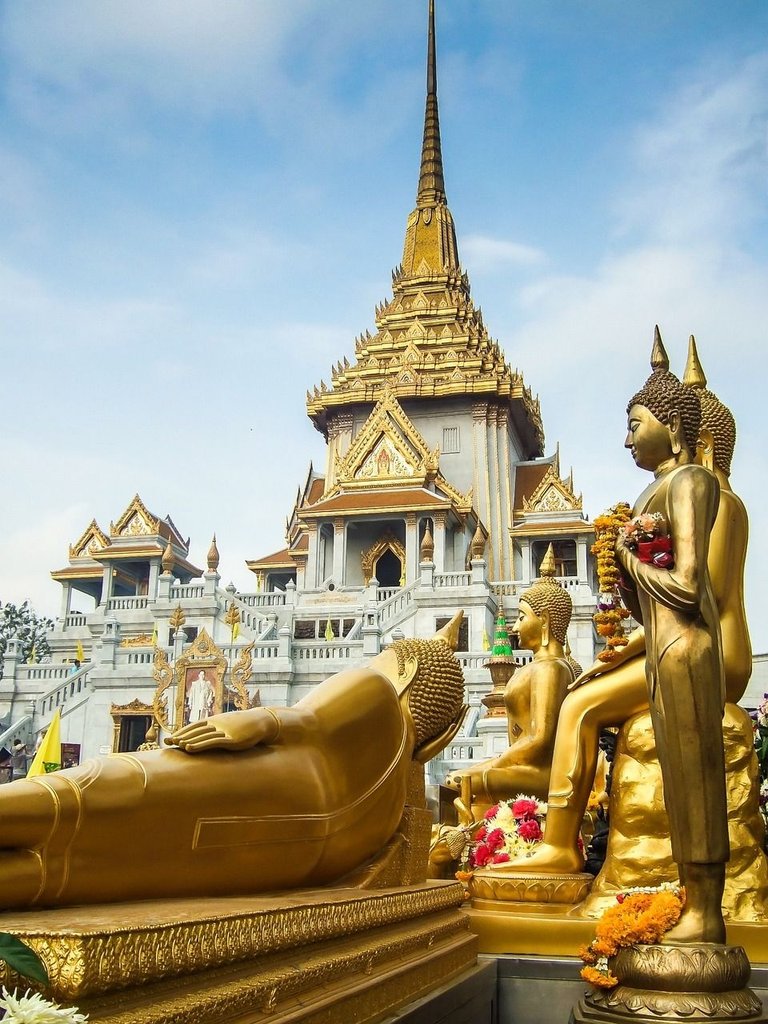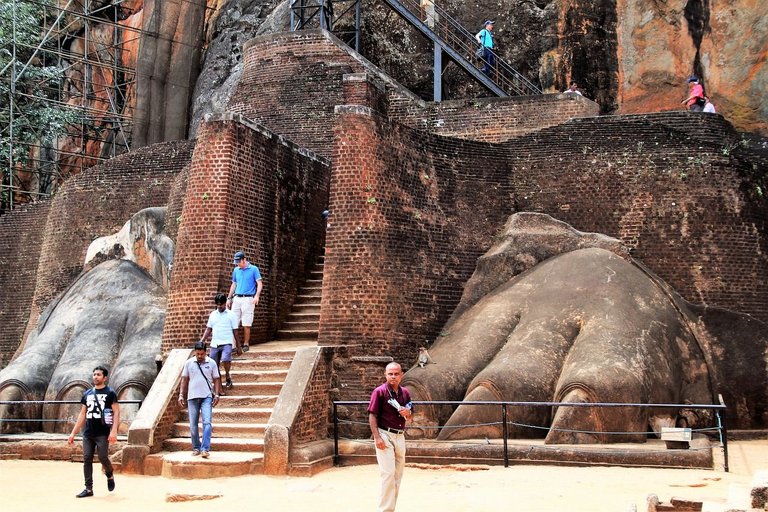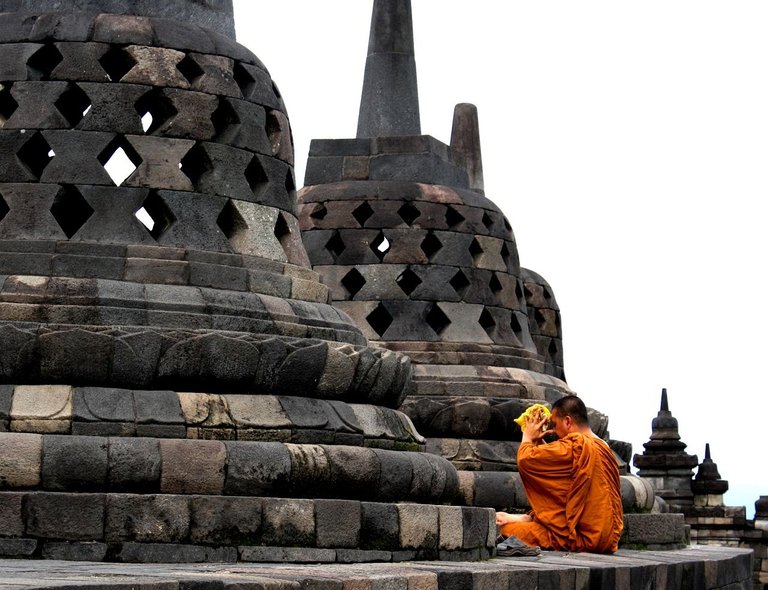Chapter three of bhagavad Gita is titled Karma Yoga. You may have heard of the phrase in English that says "work is worship". This is a mundane, although not quite accurate, description of the concept of turning our work (or karma) into our worship (or our yoga).

The difference between these two statements is that work, in and of itself, is generally for selfish purposes, such as personal profit or gain. Yoga, on the other hand, implies selfless action.
Yoga means to link up with the supreme, and when one uses one's work, or karmic activities, as a via-medium through which one can channel one's spiritual service to the Divine, then and only then, does that work actually become worship.

Without turning one's work and activities into a selfless service to the supreme spiritual cause, it remains no more than mere karmic activity without the actual yoga.
So to say "work is worship" is not really accurate in the true sense of the term. When I was at school in my youth the Latin motto for my school was "laborare est orare" which in English means "to work is to pray".

Here again we have the same western concept of one's work being as good as one's spiritual practice, in and of itself. This may well be true if one is worshiping capitalism, or if one is a devotee of the prfit, pun intended. It may also be true if one is a servant of the state and a devout Communist Party member. Then certainly one's work and actions in the service of capital or communism can be seen as worship of that particular man-made construct.
However, in Bhagavad Gita chapter three, Krishna describes to arjuna the real practice of turning one's work into one's worship. When it comes to the situation in which Arjuna found himself on the battlefield, just at the start of a World War, naturally Krishna advised Arjuna to do his work - to fight as a military general at the head of his army. That, after all, was the natural work for a person such as Arjuna, who was raised and trained in a military family.

Our particular situation might be slightly different. Our unique propensity to work might not be as a soldier, but could be has any variety of particular skills or talents, which we are born with or which inspire us (based on janma and guna, not janma alone).
Nevertheless, the concept of turning our particular style of work or karmic activity into a means of worship can still apply almost regardless of whatever the particular working propensity might be. I, for example, enjoy producing creative content in the written and visual format. These types of work appeal to me and come naturally.

This kind of activity is easy to dovetail or channel into a service to their original source. By writing and publishing these very commentaries on the verses of bhagavad Gita, I offer my work as a service to the original source, the cause of all causes, the Speaker of Bhagavad Gita, namely the supreme personality of godhead Krishna, as revealed in the ancient Sanskrit Veda.
This is my karma yoga, where I act in service to the supreme, or a higher cause, other than my ego, while simultaneously being detached from the outcome.

This writing and publication is an offering of love and is not the pursuit of profit initially. Therefore, really presenting this Bhagavad Gita is a type of yoga, specifically Bhakti yoga.
Arjuna was perplexed as to his real duty and therefore inquired submissively from his friend and teacher Krishna at the outset of the battle. And in chapter three Arjun asks Krishna to elaborate on how it is that work, when performed as a form of worship, can actually be more valuable than mere intellectual understanding.

In this predicament, our hero and the recipient of the epic Bhagavad Gita philosophy, was concerned regarding how it is that work can be greater then even renunciation on the path of liberation.
It is here in this chapter that Krishna explains how even work or so-called apparent mundane activity, can actually be transformed into yoga, and might actually be and even better practice for us, compared to merely attempting to artificially renounce work of any sort.

Such renunciation may appear to be noble on the path of liberation, but ultimately it benefits only one-self (of you're fortunate enough to succeed at maintaining it) and sometimes simply makes the path even harder.
This is because as long as we have the body we need to work,2 in some way or the other, even if merely to obtain our daily meal. Therefore, it is better to engage one's body, mind and senses in work, which is not mere karma, but which can become a yoga when dovetailed in service to the Supreme. This will be revealed more and more throughout the coming verses of this chapter 3 of bhagavad Gita.

Bhagavad Gita ch3:1
अर्जुन उवाच
ज्यायसी चेत्कर्मणस्ते मता बुद्धिर्जनार्दन ।
तत्किं कर्मणि घोरे मां नियोजयसि केशव ॥ १ ॥
arjuna uvāca
jyāyasī cet karmaṇas te
matā buddhir janārdana
tat kiṁ karmaṇi ghore māṁ
niyojayasi keśava
SYNONYMS
arjunaḥ—Arjuna; uvāca—said; jyāyasī—speaking very highly; cet—although; karmaṇaḥ—than fruitive action; te—your; matā—opinion; buddhiḥ—intelligence; janārdana—O Kṛṣṇa; tat—therefore; kim—why; karmaṇi—in action; ghore—ghastly; mām—me; niyojayasi—engaging me; keśava—O Kṛṣṇa.
TRANSLATION
Arjuna said: O Janārdana, O Keśava, why do You urge me to engage in this ghastly warfare, if You think that intelligence is better than fruitive work?
PURPORT
The Supreme Personality of Godhead Śrī Kṛṣṇa has very elaborately described the constitution of the soul in the previous chapter, with a view to deliver His intimate friend Arjuna from the ocean of material grief. And the path of realization has been recommended: buddhi-yoga, or Kṛṣṇa consciousness. Sometimes Kṛṣṇa consciousness is misunderstood to be inertia, and one with such a misunderstanding often withdraws to a secluded place to become fully Kṛṣṇa conscious by chanting the holy name of Lord Kṛṣṇa. But without being trained in the philosophy of Kṛṣṇa consciousness, it is not advisable to chant the holy name of Kṛṣṇa in a secluded place where one may acquire only cheap adoration from the innocent public. Arjuna also thought of Kṛṣṇa consciousness or buddhi-yoga, or intelligence in spiritual advancement of knowledge, as something like retirement from active life and the practice of penance and austerity at a secluded place. In other words, he wanted to skillfully avoid the fighting by using Kṛṣṇa consciousness as an excuse. But as a sincere student, he placed the matter before his master and questioned Kṛṣṇa as to his best course of action. In answer, Lord Kṛṣṇa elaborately explained karma-yoga, or work in Kṛṣṇa consciousness, in this Third Chapter.

Ref: Bhagavad Gita As It Is, translation and commentary by Swami A. C. Bhaktivedanta, original MacMillan 1972 edition.
Images pixabay
jai shri krishna... how much about bhagavad gita, yes, i do believe in KARMA, the way you treat to other, after some time the same you get in return. *Ache karam kro toh kabhi tumhra bura ni honga... * amazing article...
Many thanks for your kind response. All the wisdom is in the veda.
@julescape, Jai Shri Krishna. You have written correctly about karma. I was very happy to see the Gita written in such detail about karma yoga. Karma is a very big subject; only by practicing it can a person's life become godly. Then whatever happens is by the will of God. Thank you very much for sharing such good thoughts.
Congratulations @julescape! You received a personal badge!
Participate in the next Power Up Day and try to power-up more HIVE to get a bigger Power-Bee.
May the Hive Power be with you!
You can view your badges on your board and compare yourself to others in the Ranking
Check out our last posts:
Yay! 🤗
Your content has been boosted with Ecency Points, by @steemflow.
Use Ecency daily to boost your growth on platform!
Support Ecency
Vote for new Proposal
Delegate HP and earn more